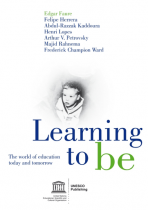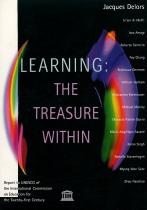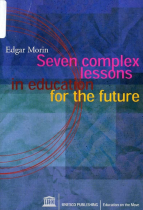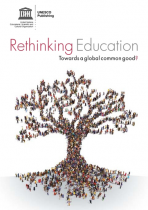倡议
背 景
随着气候变化的加速,地球的脆弱性日渐明显。持续存在的不平等现象、社会碎片化和政治极端主义致使许多社会濒临危机。数字通信、人工智能和生物技术的进步蕴含着巨大潜力,但也引发了伦理和治理方面的严重关切,特别是创新和技术变革在为促进人类繁荣作贡献方面前景尚不明朗。
愿 景
知识和学习是人类应对挑战、开辟新道路的最丰富的可再生资源。然而,教育不仅在于应对世界的改变,也在于改变世界。
目 的
本倡议将调动丰富多样的存在和认知方式,从而利用人类的集体智慧。借助广泛、开放的磋商进程,动员青年、教育工作者、民间社会、政府、企业和其他利益攸关方参与进来。这项工作将由来自世界各地区众多不同领域的思想领袖组成的高级别国际委员会指导。2021年11月,委员会将发布一份报告,分享有关教育和学习的未来的前瞻性愿景并提出政策议程。“教育的未来:学会成长”倡议将推动一场关于知识和学习如何塑造人类和地球未来的全球辩论。
重大问题
本项目使用的是复数形式的“未来" 概念,其目的在于让人们认识到世界上有多种多样的认知和存在方式。这一复数形式也提醒人们注意到未来具有多面性,有的符合我们的愿望,有的不符合我们的愿望,并且所有形式的未来都会因我们的身份和立场不同而呈现出迥异的面貌。与其试图描绘某种单一的未来,不如构想多样形式的未来,展望在我们共有的这个星球上人类拥有多种可能且令人期待的未来。
教科文组织“教育的未来”倡议还将未来视作连接过去和现在(但并不局限于此)的民主设计空间。本倡议依托于专项循证趋势分析,有助于我们更好地了解预期的挑战和机遇;辅之以参与性机制,便于构想教育可能有的各种新未来。在世界各地区开展的磋商将有助于汇集广大利益攸关方的设想和愿望,但是有关未来的创新和自主性既需要立足于当地,也需要在全球范围展开充分辩论。
本项目采用灵活、迭接和集体的方法构建未来。其目的是推动在可预见到的、可能出现的及符合愿望的人类和地球未来的背景下,针对教育、知识和学习的作用展开讨论并采取行动。
教育是《2030年可持续发展议程》的重要内容。尽管这些全球承诺意义深远并且取得了一些进展,但是2030年正在快步走来,仍然迫切需要把视野放到更远。尽管《2030年教育:仁川宣言和行动框架》为教育系统变革规定了路线图并确认了包容和公平两项核心承诺,但是我们仍然要问:教育会成为什么样子?教育能让我们成为什么样的人?教科文组织“教育的未来”倡议以2050年及以后为展望范围,旨在为近期的未来和更远的未来作出前瞻和构想规划。
Advisory Board
The Future of Education Advisory Board supported UNESCO and the International Commission during the preparation of the Reimagining our futures together: A new social contract for education report. It was composed of leading figures and key strategic partners in global education, research and innovation. The Board provided strategic guidance to UNESCO on the Futures of Education initiative, including input on content, process and outreach.
-
March 2020 Advisory Board meeting (report available here)
-
June 2020 Advisory Board meeting (report available here)
-
September 2020 Joint meeting of Advisory Board and International Commission (report available here)
-
October 2020 Special joint session on the future of life long learning held in conjunction with UNESCO's Institute for Lifelong Learning (UIL)
-
November 2020 Special joint session on the future of teaching and the teaching profession held in conjunction with Education International (EI)
-
November 2020 Special joint session on the future of higher education held in conjunction with the International Association of Universities (IAU)
-
December 2020 Special joint session on the future of the right to education held in conjunction with the Special Rapporteur on the Right to Education
-
February 2021 Second special joint session on the future of the right to education held in conjunction with the Special Rapporteur on the Right to Education
-
October 2021 Advisory board meeting with the Chair of the International Commission on the Futures of Education
Advisory Board Members
Mr Tariq Al Gurg
Chief Executive Officer, Dubai Cares

Ms Alice P. Albright
Chief Executive Officer, Global Partnership for Education (GPE)

Mr Gordon Brown
UN Special Envoy for Global Education

Ms Annette Dixon
Vice President for Human Development, The World Bank Group

Ms Henrietta Fore
Executive Director, UNICEF

Ms Susan Hopgood
President, Education International

Mr Carlos Moedas
Commissioner 2014 2019, European Commission, Research Science and Innovation

Mr Matías Rodríguez Inciarte
President of Santander Universidades and Vice President of Universia

Mr Refat Sabbah
President, Global Campaign for Education

Mr Jeffrey D Sachs
Director, Center for Sustainable Development, Columbia University

Ms Cecilia Scharp
Deputy Director General, Swedish International Development Cooperation Agency

Mr Andreas Schleicher
Director for the Directorate of Education and Skills, OECD

Ms Alette Van Leur
Director, Sectoral Policies Department, International Labour Organization

Ms Hilligje van’t Land
Secretary General, International Association of Universities

Ms Yume Yamaguchi
Director, Institute for the Advanced Study of Sustainability, United Nations University

教科文组织全球教育报告
沿袭教科文组织的传统
“教育的未来:学会成长”是教科文组织委托编写的系列全球报告中的最新一期,旨在讨论未来面临的挑战,激发变革并提出教育政策建议。
该系列报告的第一期——《学会成长:教育世界的今天与明天》由法国前总理、教育部长埃德加·富尔主持的一个委员会于1971—1972年编写。《学会成长》报告警示出现不平等、贫困和苦难的风险,并强调教育的普遍特性。富尔报告呼吁不断扩大教育范围并开展终身教育。
1993—1996年,欧盟委员会前主席、法国前经济和财政部长雅克·德洛尔领导的另一个国际委员会编写了一份以《学习:财富蕴藏其中》为题发表的报告。该报告进一步强调了人文教育的重要性,并确立了教育的“四大支柱”,即:学会生存、学会认知、学会做事、学会共同生活。
近年来教科文组织关于教育的另一份重要出版物是2015年报告《反思教育:向“全球共同利益”的理念转变?》,该报告提出要对作为全球共同利益的教育和知识进行反思。
所有这些举措,以及教科文组织在教育部门广泛开展的工作,均为正在编写的全球报告的重要参考。《教育的未来:学会成长》(将于2021年末出版)将沿袭这一传统,为多层面的教育政策对话和行动制定议程。





